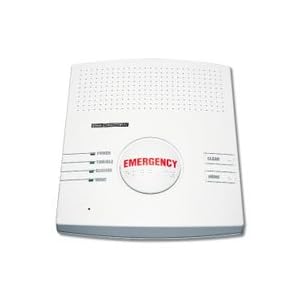Falling is not a normal part of aging. You should consult with your physician to be sure that there is not a medical reason that is causing you to fall. Conditions like low blood pressure, diabetes, neurological disorders, vision problems, ear problems and medications could be contributing to these falls.

However, there are some simple things you can do around your home to make your living environment safer. Night time and early morning are the most common times of day that falls occur. When you sit up in bed from a lying position, you frequently experience some dizziness because of the rush of blood from your head. When you are older, the urge to use the bathroom can come on quickly so you feel rushed to get to the restroom. If you do not take the time to regain your balance before you attempt to stand and walk, you are going to fall. An easy way to avoid this problem is to wait until your head is clear and then continue on with your business. If that means you need to wear some incontinence protection to bed to give you that time, then do it. This will keep everything tidy and also keep you from hitting the floor. Also, make sure to have a light right beside your bed that you can easily reach so you are not doing things in the dark!
Another major cause of falls in the home are those cute, very stylish throw rugs. We all have them and honestly I would have trouble parting with mine too, but it is important to do away with them - especially if you use a walker or a cane to ambulate. These throw rugs are a trip hazard waiting to happen. They can very easily knock you off balance, causing you to fall.
You should also consider that you may need the aide of a cane or walker to improve your balance. There are many conditions that affect your balance as you age; Parkinson's, vision loss, stroke, just to name a few. Many people resist the use of these devices, maybe because they think it will make them appear old or that they need help. In fact, by recognizing this need, they are actually enabling themselves to remain independent longer because they reduce their risk of falling, which can lead to injuries that will the store and buy the cutest device you can find. You need to be trained how to use these devices correctly and safely. You should speak to your physician about these devices and ask for a referral for Physical Therapy. The physical therapists will evaluate your abilities and what device will work the best for you. They will also train you on how to use them correctly. Also, by asking for this prescription from your doctor, you should be able to have your new device partially paid by your Medicare plan. "Adjustable Aluminum Cane"
Hugo Elite Rolling Walker 4.0 - Rolling Walkers & Rollators
Lastly, if you live alone, what would you do if you did fall and could not get yourself off the floor to get help? Be proactive in preventing this terrible situation! Look into a Home Medical Alert System that you can wear on a bracelet or necklace all the time that will automatically call someone to come and help you just by pressing a button. There are different ways to obtain these devices. There are companies that sell their devices and then charge a monthly fee for 24-hour on-call personnel. These are great if you do not live very close to family or friends who could be the ones to help you. If you do have family and friends nearby who would be willing to be the on-call person should something happen, then you can purchase these devices at a local pharmacy or medical supply store with no monthly fee. You can program a specific phone number in them so when you push the button it will dial that number for help.

Preventing falls as we age leads to Aging with Ease!





